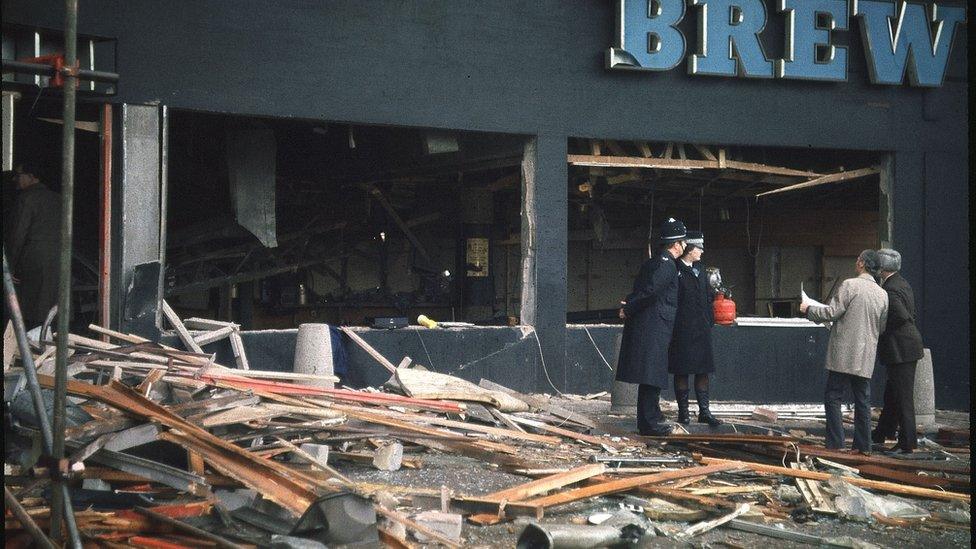Woolwich IRA blast: Victim's brother does not want inquest reopened
- Published
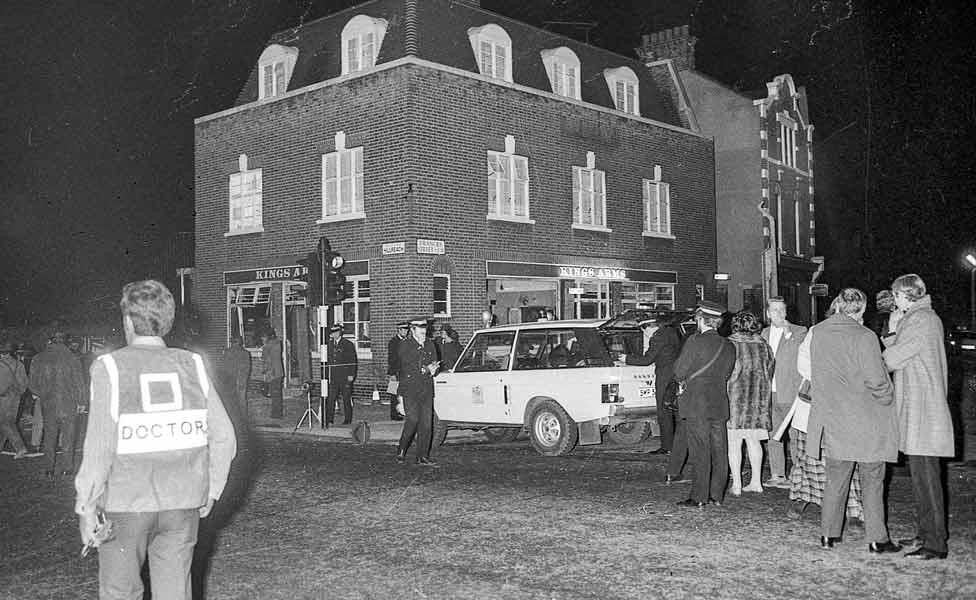
The bomb was thrown through the window of Woolwich's King's Arms pub
A man who lost his brother in a London pub bombing in 1974 said investigations into the fatal explosion should have been dealt with "there and then".
Alan Horsley, 20, and Richard Dunne, 42, died and 35 people were injured by the IRA bomb at Woolwich's King's Arms.
Two people jailed for the blast had the sentences quashed 15 years later and Stan Horsley said "nothing was done".
Inquests into pub bombings in Guildford and Birmingham have resumed but he said it should not happen for Woolwich.
"I believe they should leave it be," he said. "It was 50 years ago and my motto is 'let sleeping dogs lie'."
Soldiers targeted
The 64-year-old said his older brother, Alan, who worked as a sales clerk, was married when he died. Alan had grown up with his brother and five sisters in Brockley, south east London.
Mr Horsley, who now lives in Royston, Hertfordshire, had gone into the Army at the age of 16, joining the 3rd Royal Green Jackets infantry.
In 1974, the IRA had already targeted soldiers' pubs in Guildford but when the bomb went off at the King's Arms, a soldiers' pub near Woolwich Barracks, it killed Mr Horsley's civilian brother.
Mr Horsley said: "I was in Plumstead on the night the bomb went off. I was a mile-and-a-half up the road and on the night he died, I had just come back from Belfast.
"He [Alan] had no connection with the army at all."
The explosion in Woolwich was one of a series of pub bombings in England carried out by the IRA that year. It happened a month after five people died in Guildford and two weeks before bombs at two pubs in Birmingham killed 21 people. Following the attacks, the Guildford Four, Maguire Seven and Birmingham Six were wrongly jailed.
Two of the Guildford Four - Paul Hill and Paddy Armstrong - were falsely accused of throwing a bomb through the window of the King's Arms and their convictions brought the inquests to an end.
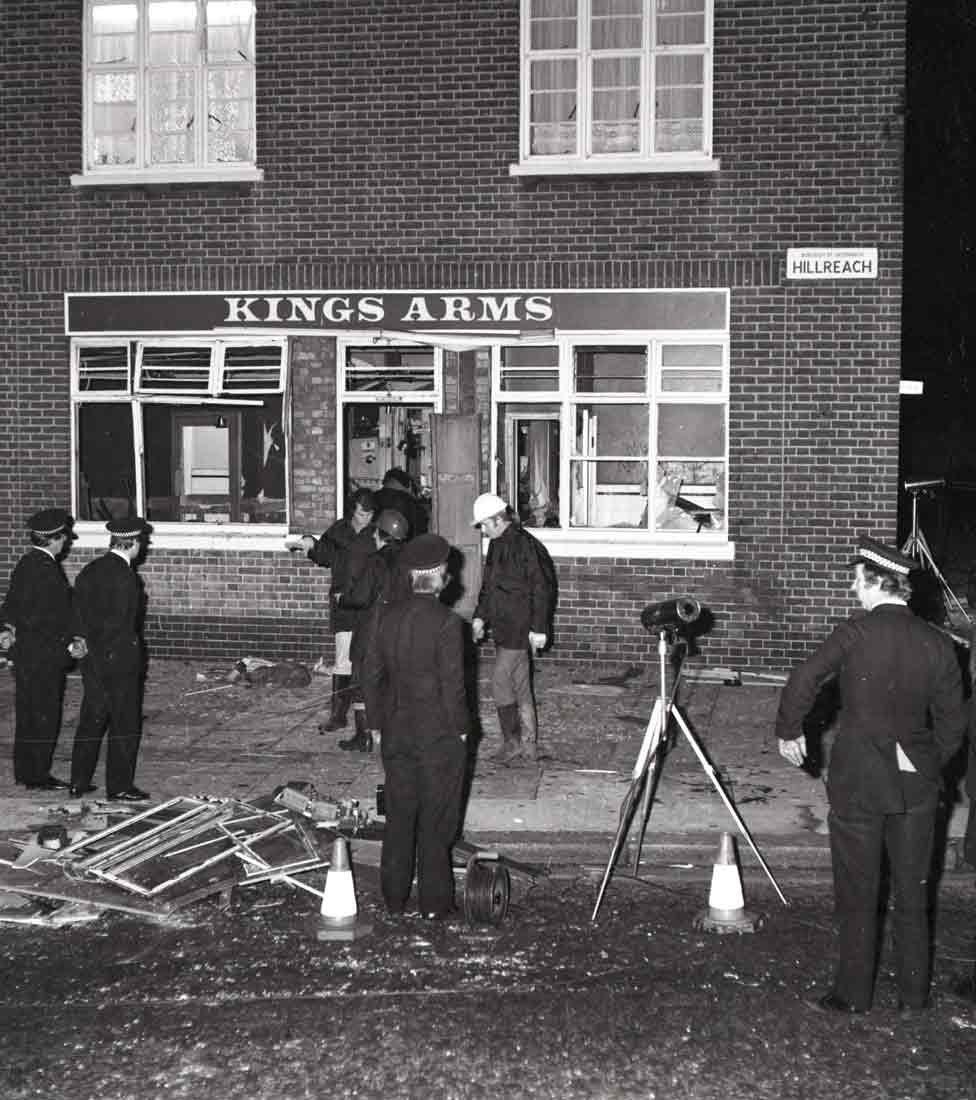
Two men died and 35 people were injured

In recent years, the inquest process has resumed in Birmingham and Guildford but families in both cases argued the hearings did not tackle questions they had.
Mr Horsley said: "They only got an inquest into what the government wanted them to see."
He also raised questions about archives on the Guildford pub bombings, some of which opened recently, only to be taken back by the Home Office.
Mr Horsley said: "You'll open things up again and if the government have decided they don't want anything to do with it, those files will disappear."
When it emerged in December that more than 700 files had been taken back by the Home Office and would remain closed, the government said it was "carefully considering the release" of the files and any impact this could have on future inquest proceedings or investigations.
Lawyers have said the Woolwich, Guildford and Birmingham pub bombings must be viewed as conflict-related and investigated to the same standards that have applied in Northern Ireland.
Mr Horsley said: "It should have been sorted out there and then and none of this should be going on 50 years after it's all finished.
"Two people were jailed and 15 years later they had nothing to do with it and it was all quashed."
Mr Horsley said he believed to open the Woolwich inquest now would only upset relatives.
"It's 50 years ago," he said. "If you start reopening it, I honestly believe you're going to cause more grief for the family."
- Published6 February 2020
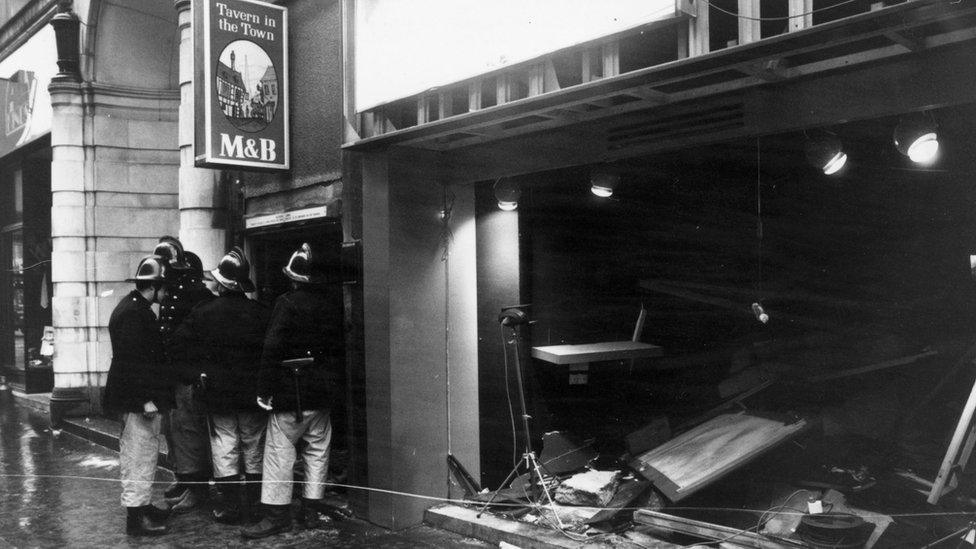
- Published4 February 2020
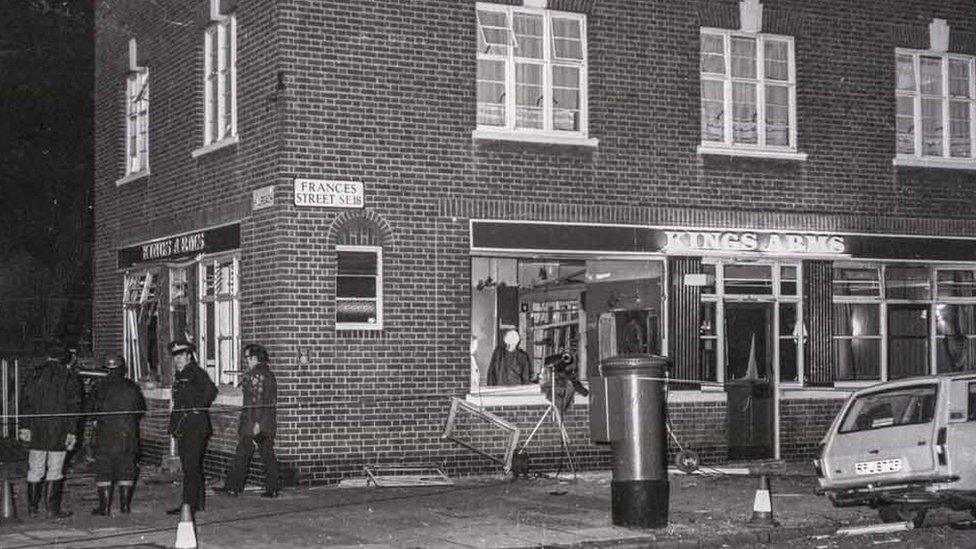
- Published31 December 2019
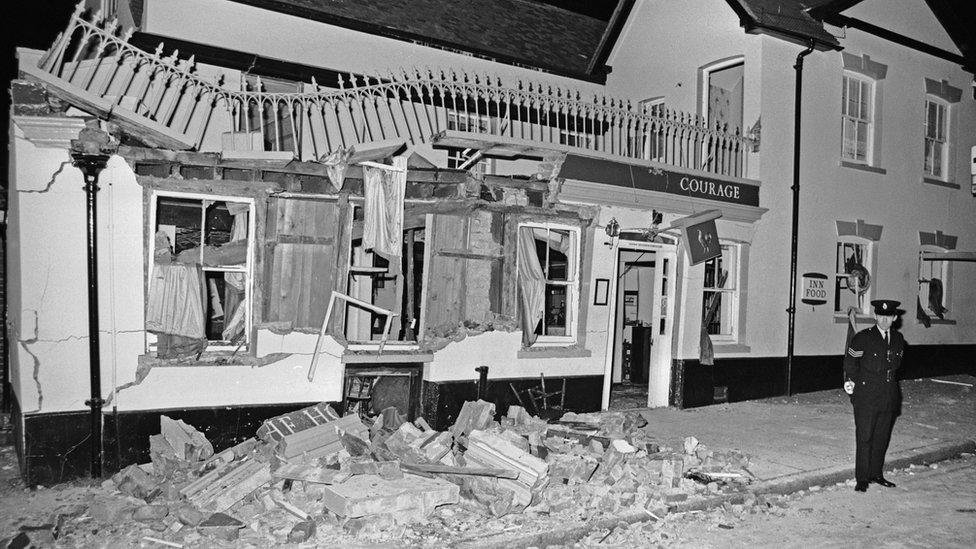
- Published18 December 2019
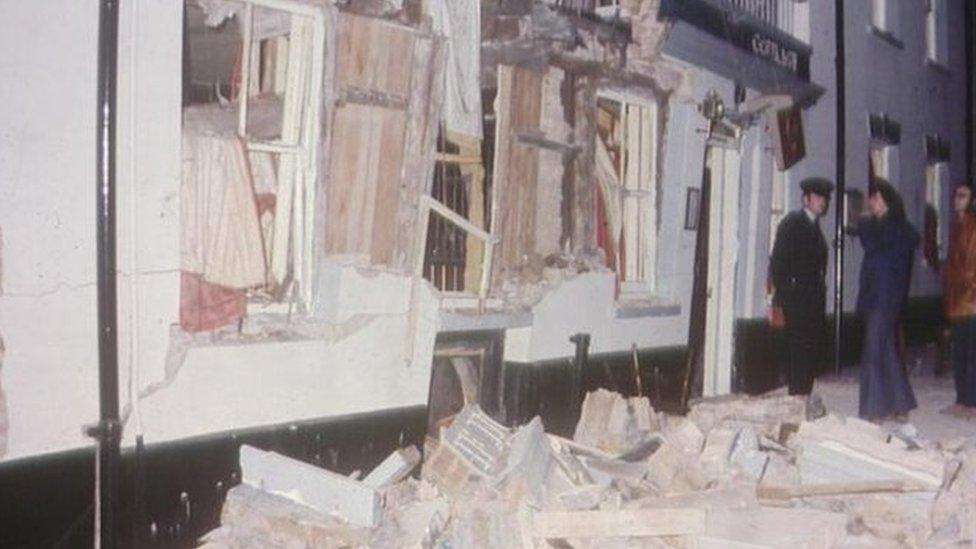
- Published3 October 2019
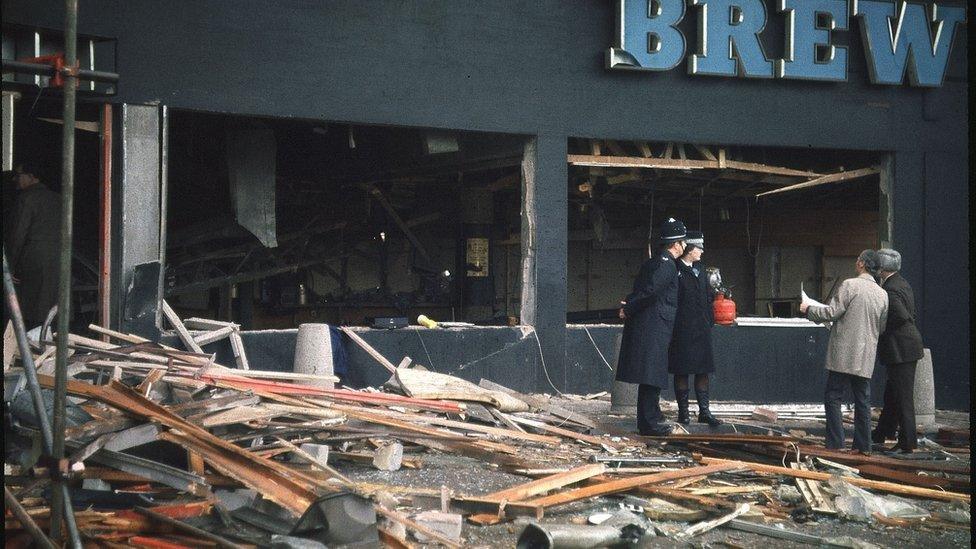
- Published5 April 2019

- Published1 February 2019

- Published26 September 2018
